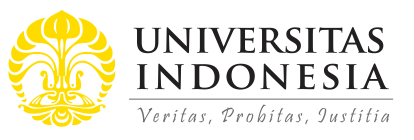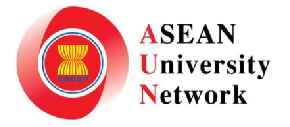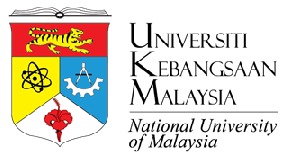
Abstract
Looking through the eyes of the local community is crucial for a successful corporate social responsibility (CSR) program. Within a local context, it is essential to understand the community’s perception and find the possible gaps within such a CSR program. Such assessment can be a way to identify aspects that are considered essential and beneficial by the community. This article presents the assessment of the CSR program of a particular company and its impact perceived by the local community. This study used quantitative research methods and elaborated with qualitative methods to gain a comprehensive overview of the community’s perception of an existing CSR Program conducted by the AIO Company in Pasuruan, East Java, Indonesia. The data was collected through a structured questionnaire to obtain information from 100 respondents in Pacar Keling Village, followed by in-depth interviews. Based on the data, it is found that the community perceived various programs offered by the company with positive and negative insights due to the lack of community involvement during the program planning. Some programs, like food and health-related are well-received. However, some are perceived as unsuitable for the community, suggesting inaccuracies in determining the target recipients of such programs and, thus, limited engagement from the targeted community. Assessing the impact of such a CSR program shows the importance of engaging the local community as a significant stakeholder, fully extending the positive public perceptions, and maintaining the company’s goodwill and ethics.
References
Afhami, S. (2021). Role of legal consultants education on corporate social responsibility and social impact. Journal of Social Studies Education Research, 12(2), 152–179. https://jsser.org/index.php/jsser/article/view/3209
Banerjee, S. B. (2001). Corporate citizenship and indigenous stakeholders: Exploring a new dynamic of organisational–stakeholder relationships. The Journal of Corporate Citizenship, 1, 39–55. https://www.jstor.org/stable/jcorpciti.1.39
Boadi, E. A., He, Z., Darko, D. F., & Abrokwah, E. (2018). Unlocking from community stakeholders, corporate social responsibility (CSR) projects for effective company–community relationship. Labor History, 59(6), 746–762. https://doi.org/10.1080/0023656X.2018.1470223
Carroll, A. B. (2021). Corporate social responsibility: Perspectives on the CSR construct’s development and future. Business & Society, 60(6), 1258–1278. https://doi.org/10.1177/00076503211001765
Dahlsrud, A. (2006). How corporate social responsibility is defined: An analysis of 37 definitions. Corporate Social Responsibility and Environmental Management, 15(1), 1–13. https://doi.org/10.1002/csr.132
de Morais, C. E., Paschoiotto, W. P., Bernardes, L. d. S., Sehnem, S., & Guerra, J. B. S. d. A. (2021). Finance sustainable supply chain: An analysis looking for B corporations and agency theory. Environmental Quality Management, 31(3), 187–199.https://doi.org/10.1002/tqem.21771
Deigh, L., Farquhar, J., Palazzo, M., & Siano, A. (2016). Corporate social responsibility: Engaging the community. Qualitative Market Research, 19(2), 225–240. https://doi.org/10.1108/QMR-02-2016-0010
Dunlap, A., & Arce, M. C. (2022). ‘Murderous energy’ in Oaxaca, Mexico: Wind factories, territorial struggle and social warfare. The Journal of Peasant Studies, 49(2), 455–480. https://doi.org/10.1080/03066150.2020.1862090
Ernawan, E. (2014). Tanggung jawab sosial perusahaan [Corporate social responsibility]. Jurnal Manajemen dan Bisnis (Performa), 11(2). https://ejournal.unisba.ac.id/index.php/performa/article/view/3026
Ervits, I. (2021). CSR reporting by Chinese and Western MNEs: Patterns combining formal homogenization and substantive differences. International Journal of Corporate Social Responsibility, 6(1), 1–24.
Haveman, H. A., & Nedzhvetskaya, N. (2022). Community, enterprise, and self-help: The coevolution of capitalism and non-profit and for-profit businesses in Britain and Germany. In R. E. Meyer, S. Leixnering, & J. Veldman (Eds.), The corporation: Rethinking the iconic form of business organization (Vol. 78, pp. 121–141). Emerald Publishing Limited.
Hettige, H., Huq, M., Pargal, S., & Wheeler, D. (1996). Determinants of pollution abatement in developing countries: Evidence from South and Southeast Asia. World Development, 24(12), 1891–1904. https://doi.org/10.1016/S0305-750X(96)00076-9
Hodge, G. A., & Coghill, K. (2007). Accountability in the privatized state. Governance:An International Journal of Policy, Administration, and Institution, 20(4), 675–702. https://doi.org/10.1111/j.1468-0491.2007.00377.x
Javed, S., Rashidin, M. S., & Jian, W. (2021). Predictors and outcome of customer satisfaction: Moderating effect of social trust and corporate social responsibility. Future Business Journal, 7, 1–18. https://doi.org/10.1186/s43093-021-00055-y
Kapelus, P. (2002). Mining, corporate social responsibility and the “community”: The case of Rio Tinto, Richards Bay Minerals and the Mbonambi. Journal of Business Ethics, 39, 275–296. https://doi.org/10.1023/A:1016570929359
Kholis, A., Lukitaningsih, L., & Lubis, S. (2021). Policy model corporate social responsibility during the Covid-19 Pandemic: (Empirical finding of state own enterprises in North Sumatra Province, Indonesia). Economit Journal: Scientific Journal of Accountancy, Management and Finance, 1(3), 177–189. https://doi.org/10.33258/economit.v1i3.491
Lantos, G. P. (2001). The boundaries of strategic corporate social responsibility. Journal of Consumer Marketing, 18(7), 595–632. https://doi.org/10.1108/07363760110410281
Maurice, L. C. S. (Ed.). (2022). Theoretical foundations. In Corporate social responsibility (pp. 3–15). Springer.
McCarthy, J., & Zen, Z. (2009). Regulating the oil palm boom: Assessing the effectiveness of environmental governance approaches to agro-industrial pollution in Indonesia. Law & Policy, 32(1), 153–179. https://doi.org/10.1111/j.1467-9930.2009.00312.x
Nadapdap, B., & Hutabarat, S. M. D. (2015). Tanggung jawab sosial perusahaan: Antara kewajiban dan kesukarelaan [Corporate’s social responsibility: Between obligation and volunteerism]. Jurnal Yuridis, 2(1), 111–134.
Onkila, T., & Sarna, B. (2021). A systematic literature review on employee relations with CSR: State of art and future research agenda. Corporate Social Responsibility and Environmental Management, 29(2), 435–447. https://doi.org/10.1002/csr.2210
Porter, M. E., & Heppelmann, J. E. (2015). How smart, connected products are transforming companies. Harvard Business Review, 93(10), 96–114.
Rasyid, A., & Nasution, B. (2022). Effects of corporate social responsibility communications on community empowerment in Pekanbaru. Linguistics and Culture Review, 6(S3), 12–23. https://doi.org/10.21744/lingcure.v6nS3.1900
Romadhona, M. K., Subagyono, B. S. A., & Agustin, D. (2022). Examining sustainability dimension in corporate social responsibility of ExxonMobil Cepu: An overview of socio-cultural and economic aspects. Journal of Social Development Studies, 3(2), 128–141. https://doi.org/10.22146/jsds.5038
Safri, H. S. (1988). Sosio-economic accounting (SEA): Menyoroti etika dan tanggung jawab social perusahaan [Sosio-economic accounting (SEA): Highlighting ethics and corporate’s social responsibilliity]. Majalah Akuntansi, 3.
Sankat, C. K. (2002). Introduction to workshop on corporate social responsibility.
Sigel, A. (2021). CSR statements: Incentives and enforcement in the wake of the business roundtable’s statement on corporate purpose. Boston University Law Review, 101(2), 803–833.
Suadi, A. (1988). Akuntansi sosial: Implikasi dan kemungkinan pengembangan di Indonesia [Social accounting: Implications and development possibilities in Indonesia]. Majalah Akuntansi, 11.
Treviño, L. K., & Nelson, K. A. (2010). Managing business ethics: Straight talk about how to do it right (5th ed.). John Wiley & Sons.
Tsui, A. S., & McKiernan, P. (2022). Understanding scientific freedom and scientific responsibility in business and management research. Journal of Management Studies, 59(6), 1604–1627. https://doi.org/10.1111/joms.12816
Utomo, M. (2000). Praktik pengungkapan sosial pada laporan tahunan perusahaan di Indonesia: Studi perbandingan antara perusahaan-perusahaan high-profile dan low-profile [Social disclosure practices in company annual reports in Indonesia: Comparative study between high-profile and low profile companies]. Simposium Nasional Akuntansi, 3.
Waagstein, P. R. (2010). The mandatory corporate social responsibility in Indonesia: Problems and implications. Journal of Business Ethics, 98(3), 455–466. https://doi.org/10.1007/s10551-010-0587-x
Wood, M. E. (2002). Ecotourism: Principles, practices and policies for sustainability.UNEP.
Zaccone, M. C., Santhià, C., & Bosone, M. (2022). How hybrid organizations adopt circular economy models to foster sustainable development. Sustainability, 14(5), Article 2679. https://doi.org/10.3390/su14052679
Recommended Citation
Romadhona, Mochamad Kevin; Oktafenanda, Rachmat Dimas; and Kinasih, Sri Endah
(2024).
Assessing Corporate Social Responsibility From the Perspective of the Local Community.
ASEAN Journal of Community Engagement, 8(1), 59-72.
Available at: https://doi.org/10.7454/ajce.v8i1.1196
Included in
Civic and Community Engagement Commons, Community-Based Research Commons, Quantitative, Qualitative, Comparative, and Historical Methodologies Commons, Rural Sociology Commons







